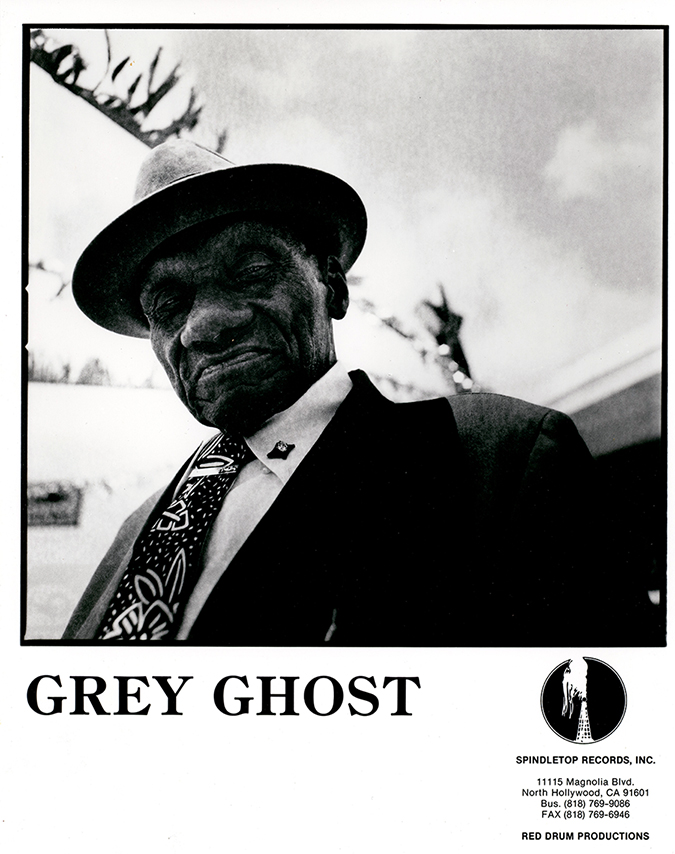
Roosevelt Williams was born in Bastrop, Texas, on December 7, 1903. He moved to Taylor, Texas, as a young child following the death of his father and the re-marriage of his mother. He attended public school in Taylor and learned to play piano by ear. He was inspired by Charlie Dillard, George Mack and other local piano players.
He moved to Waco and began playing music at house parties, speak-easies and dance halls. In addition to straight-ahead blues, he performed waltzes, hillbilly, and boogie-woogie “blues at hi-temperature.” In the late thirties, he was recorded by folklorist William A. Owens, who devoted 10 pages of his well-known book Tell Me a Story–Sing Me a Song, to Williams’ music.
Williams composed a variety of blues songs, including The Hitler Blues and Louise. Williams, at some point in the long tapestry of his career, earned the nickname “Grey Ghost,” apparently due to his disconcerting habit of suddenly appearing at gigs, then abruptly disappearing after playing. On his nickname, he once explained, “They said like a ghost I come up out of the ground, and then I was gone.”
Williams was inducted into the Texas Music Hall of Fame, and was a featured performer at the New Orleans Jazz and Chicago Blues festivals, and he appeared in the films The Hot Spot and Shady Grove. Finally, in the late eighties Grey Ghost appeared on two albums released by Catfish Records. He also performed at the 1987 Texas Blues Reunion at Victory Grill and at the historic Texas Barrelhouse Blues Piano Concert at Huston-Tillotson. In 1988, he was booked for the New Orleans Jazz and Heritage Festival and the Chicago Blues Festival. In his last year Williams played regularly at Antone’s and the Continental Club. He passed away at the age of 93 on July 19, 1996, a much beloved Austin performer.